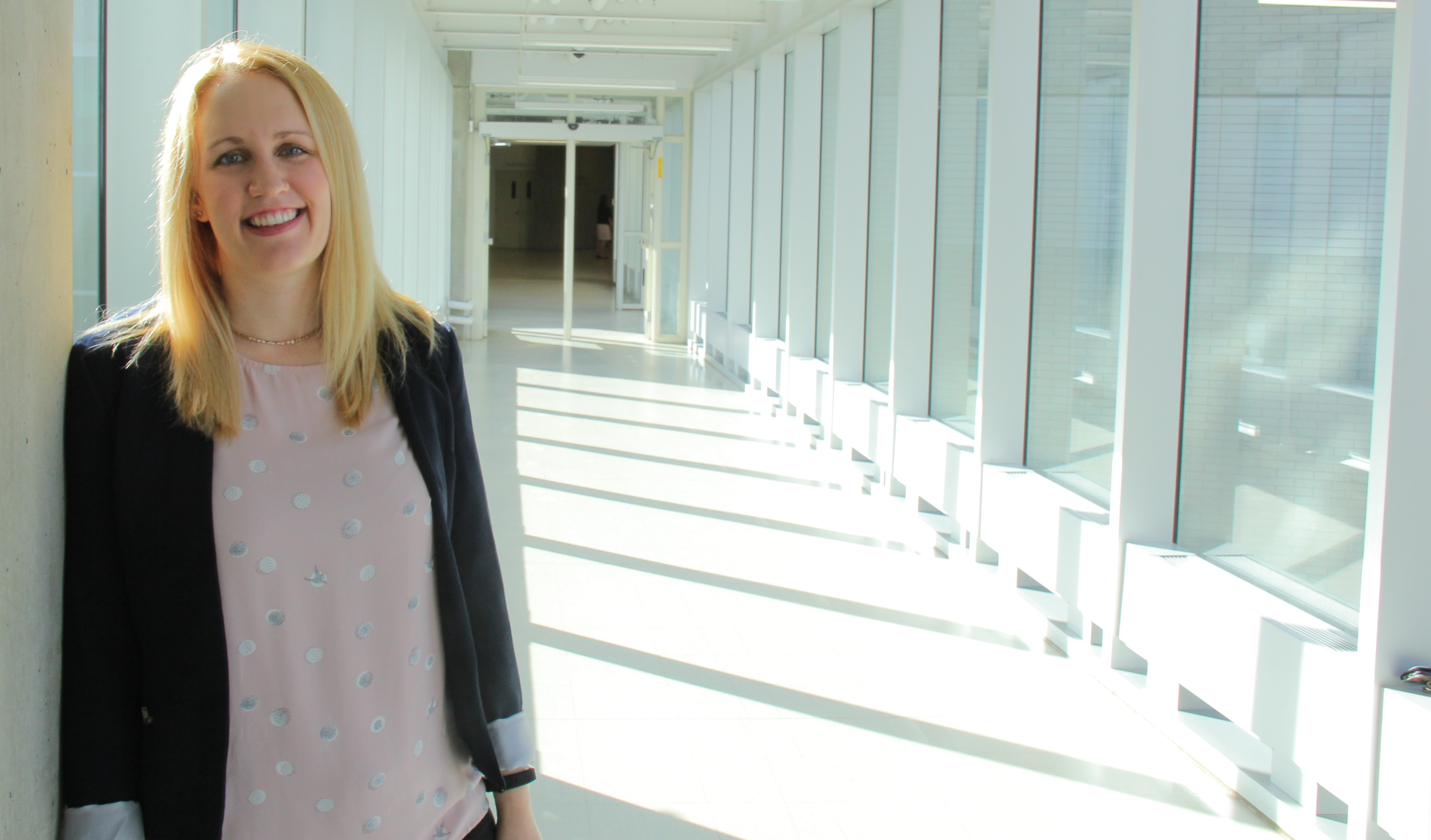
PhD student Haley Schafer takes a long-term view of mining operations. When she thinks of tailings pond dams, Schafer looks ahead 1,000 years.
(Edmonton) Tailings ponds are a challenging feature of mining operations. In Alberta's oilsands, tailings ponds cover an estimated 200 square kilometres, containing nearly 1 billion cubic metres of contaminated water left over from oilsands mining process.
The consequences of errors in design or construction of these dams are enormous. Tailings dam failures cause catastrophic damage. The risks of failure must be clearly understood, monitored and mitigated.
Haley Schafer, an Engineering at Alberta PhD student, is taking our understanding of the long-term behaviour of these dams to the next level as leader of the Dam Safety Research Project.
Her PhD research began after a tailings dam failure about 300 km west of Edmonton at the Obed Mountain Mine. The October 13, 2013 dam failure spilled 670,000 cubic metres of waste water (approximately the volume of 268 Olympic-sized swimming pools) and 90,000 tonnes of waste material (about the weight of 530 blue whales) into tributaries of the Athabasca River.
The mining corporation in charge of the mine, Prairie Mines & Royalty, was handed $4.5-million in fines in 2017. A percentage of that sum has been allocated as part of a creative sentence: the company must fund research aimed at preventing similar failures in the future, and this research has taken the form of Schafer's Dam Safety Research Project.
Schafer says the goal of the research project is to "help understand the long-term behaviour of tailings dams and to help develop risk-management tools for these facilities with the hope of preventing failures after a mine has closed."
She explains that as mines close the pits are filled, the land is graded, and buildings are torn down.
"A lot of what was there is taken away," she said. "But the tailings dams and the waste are still there."
And there they will remain, because the long-term behaviour of tailings dams is not measured in terms of years, or even decades.
"When we talk about long-term with these structures, we're really talking about in perpetuity," she said. According to Schafer, 1,000 years is a suitable time frame in which to view the behaviour of tailings dams.
Tailings dam failures have caused tragic losses of lives and massive ecological, environmental, and economic damage globally.
"It's a huge problem we're facing globally," said Schafer. "Not just in Alberta and not just in Canada. The impacts of mining are something that we have to deal with."
She says the key to mitigating disasters like the one at Obed, and more recent tragedies at mines in Bolivia, is to always be thinking about the consequences of decisions made throughout the design-and-build processes of tailings dams.
"I am pro-responsible and -sustainable mining. I believe we need mining as a society, but I also think that we need to be doing it in a very sustainable manner and taking care of what we're doing."
Schafer's sense of social responsibility extends beyond her research. In fact, she applies the same dedication to community engagement and leadership. "One of the main things that I'm really passionate about is mentorship," Schafer said.
She also leads a small groups ministry at her local church, focusing on building strong communities from within. On top of that, Schafer has been on the board of the Geotechnical Society of Edmonton, a local chapter of the Canadian Geotechnical Society, for three years, and she is now helping to start a student chapter of the Canadian Geotechnical Society at the University of Alberta.
"A lot of the extracurricular activities I do because I'm passionate about those mentorship aspects, building strong technical or personal communities-whatever it may be."
The significance of mining and its social, environmental and economic impact is global in scope. In recognition of her excellent academic achievement, her research's contributions to the field of geotechnical engineering, and her demonstrated leadership and civic engagement, Schafer was awarded the prestigious 2018 Vanier Canada Graduate Scholarship in 2018.